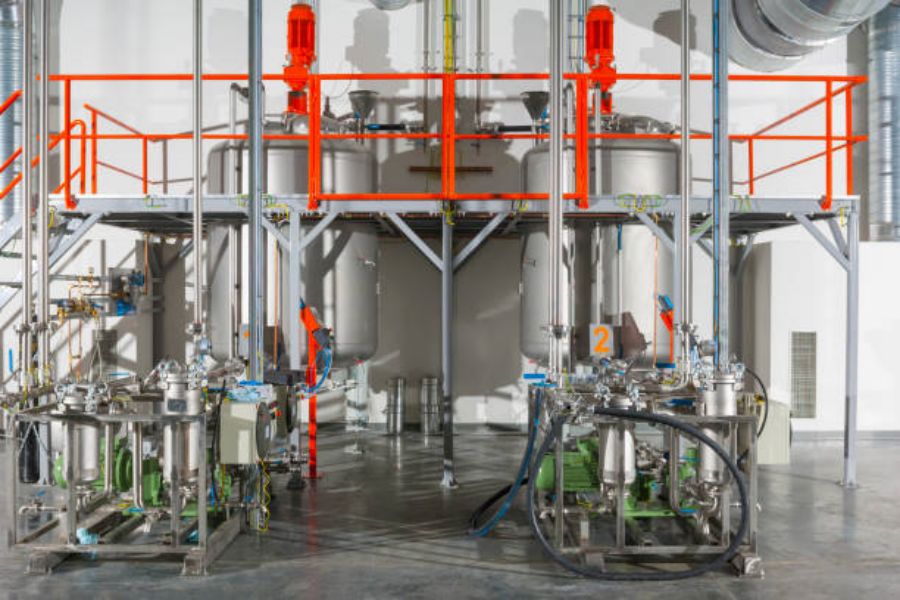What is Chiller Water and How Does it Work?
Chiller water refers to the water that is used in a chiller system to absorb heat from a process or building and transfer it to the atmosphere. Chiller systems are commonly used in air conditioning, industrial processes, and refrigeration. The chiller water absorbs heat from the process or building through a heat exchanger and then circulates through the chiller unit where the heat is removed. The cooled chiller water is then circulated back to the process or building to repeat the cycle.
The Importance of Chiller Water Quality
The quality of chiller water is crucial for the efficient operation of chiller systems. If the chiller water is not properly treated, it can lead to various issues such as scaling, corrosion, and biological growth. Scaling occurs when minerals in the water precipitate and form deposits on the heat exchanger surfaces, reducing its efficiency. Corrosion can cause damage to the chiller system components, leading to leaks and system failures. Biological growth, such as algae and bacteria, can also impact the performance of the chiller system.
Chiller Water Treatment Methods
To maintain the quality of chiller water, various treatment methods are employed. One common method is chemical treatment, where chemicals are added to the water to prevent scaling, corrosion, and biological growth. These chemicals can include inhibitors, dispersants, and biocides. Filtration is another important treatment method, which involves removing particles and impurities from the chiller water. Additionally, regular testing and monitoring of chiller water parameters such as pH, conductivity, and microbial content is necessary to ensure optimal performance.
The Role of Chiller Water in Air Conditioning
Chiller water plays a vital role in air conditioning systems. In a typical air conditioning setup, chilled water is circulated through cooling coils in air handling units. The warm air from the room passes over these coils, and the chiller water absorbs the heat, cooling the air. The cooled air is then distributed back into the room. This process helps maintain a comfortable temperature and humidity level in the indoor environment. Chiller water is also used in large commercial buildings where multiple air conditioning units are connected to a central chiller plant.
Chiller Water in Industrial Processes
Chiller water is widely used in various industrial processes that require cooling. Industries such as manufacturing, pharmaceuticals, food and beverage, and chemical rely on chiller systems to remove heat generated during their processes. Chiller water is used to cool equipment, machinery, and products. It plays a critical role in maintaining the temperature and quality of these processes. Without proper cooling, industrial processes can experience reduced efficiency, product defects, and even equipment breakdowns.
The Advantages of Chiller Water in Refrigeration
Chiller water is an essential component in refrigeration systems. In refrigeration, chiller water is used to remove heat from the refrigerated space and maintain the desired temperature. The chilled water absorbs the heat from the refrigerated items and carries it away, allowing the refrigeration system to maintain a low temperature. This is particularly important in industries such as food storage, pharmaceuticals, and cold storage facilities. Chiller water helps preserve the freshness and quality of perishable goods, preventing spoilage and extending shelf life.
Energy Efficiency and Chiller Water
Chiller water systems can offer energy-efficient cooling solutions. Compared to traditional air conditioning units, chiller systems have the advantage of centralizing the cooling process, which can lead to energy savings. Chiller water systems can be designed with variable speed drives, allowing them to adjust their cooling capacity based on demand. Additionally, they can utilize free cooling, where the chiller water is cooled using ambient air or water sources, reducing the need for mechanical cooling. These energy-efficient features make chiller water systems a popular choice for large-scale cooling applications.
Chiller Water Maintenance and Troubleshooting
Proper maintenance and troubleshooting are essential to ensure the smooth operation of chiller water systems. Regular inspections, cleaning, and servicing of chiller components, including heat exchangers, pumps, and valves, help prevent issues such as blockages, leaks, and inefficiencies. Monitoring chiller water parameters and conducting regular water testing is also crucial to identify any potential problems early on. In case of malfunctions or breakdowns, prompt troubleshooting and repairs are necessary to minimize downtime and prevent further damage to the chiller system.
Future Trends in Chiller Water Technology
The field of chiller water technology is constantly evolving, driven by the need for more energy-efficient and environmentally friendly cooling solutions. Advances in compressor technology, such as the use of magnetic bearings and oil-free designs, are enhancing the efficiency and reliability of chiller systems. The integration of smart controls and monitoring systems allows for better optimization and management of chiller water systems. Additionally, the use of alternative refrigerants with lower global warming potential is becoming increasingly important to reduce the environmental impact of chiller water systems.
Conclusion
Chiller water is a vital component in various applications, including air conditioning, industrial processes, and refrigeration. Understanding the importance of chiller water quality, treatment methods, and maintenance is crucial for the efficient and reliable operation of chiller systems. As technology continues to advance, chiller water systems are expected to become even more energy-efficient and environmentally friendly, offering sustainable cooling solutions for a wide range of industries.
